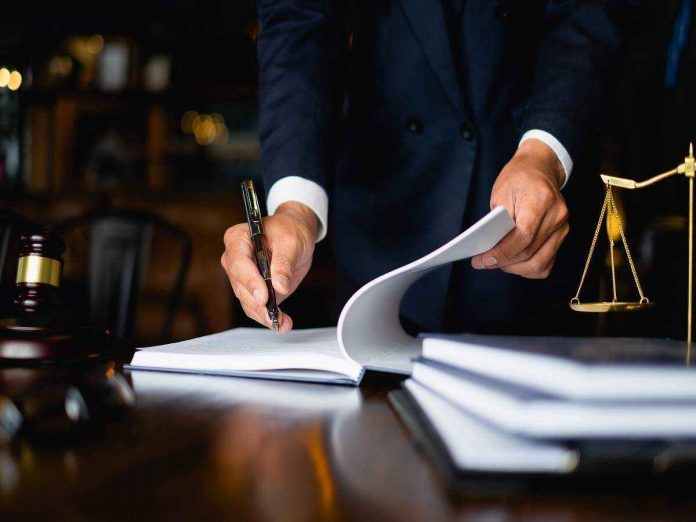This article has been written by Amarpal Singh, pursuing the Certificate Course in National Company Law Tribunal (NCLT) Litigation from LawSikho.
Table of Contents
Introduction
A code of conduct can be defined as a set of ethical norms, which act as a benchmark of right action to be taken by a person at a given point of time and which is based on the expectations of the system or society. It plays a very crucial role in the evolution of mankind and has contributed immensely to strengthen the legal system.
Notably, there is a code of conduct for every professional. As far as insolvency professionals (hereinafter IPs) are concerned, the code of conduct for them is codified in writing and enforced with penalties. The code of conduct for IPs aims to help them efficiently perform their professional obligations. This article aims to describe the code of conduct applicable to IPs and highlight the important decisions taken by the Insolvency and Bankruptcy Board of India (hereinafter IBBI), Disciplinary Committee, and Adjudicating Authority, (hereinafter AA) against IPs for violation of the code of conduct.
Who is an IP?
An IP is a professional who is enrolled with an Insolvency Professional Agency (hereinafter IPA) as a member under Section 206 of the Insolvency Bankruptcy Code, 2016 ( hereinafter IBC) and is also registered with IBBI under Section 207 of IBC, after qualifying the limited insolvency examination.
Code of conduct applicable to an IP
Regulation 7 (2) of the IBBI (IPs) Regulations, 2016 provides for five primary commandments of conduct to be followed by an IP. It provides that registration of IP with IBBI is subject to the following conditions that the IP shall:
- At all times by the IBC, rules, regulation and guidelines thereunder.
- At all times continue to satisfy the requirement of Regulation 4.
- Continue and undergo professional education as may be required by IBBI.
- Not outsource his duties and responsibility under the IBC, except those specifically permitted by IBBI.
Moreover, abide by the code of conduct specified in the first schedule to the regulation which is also summarized as follows:
Integrity and objectivity
- An IP should be honest, straightforward and direct in all professional relationships.
- An IP should not get involved in any activities that might bring disrepute to the profession and must not misinterpret the facts or situation.
- An IP during his professional dealings must act with objectivity by ensuring that decisions made by him are free from bias, conflict of interest, coercion and undue influence by any party, whether directly connected with the insolvency proceeding or not.
- Whenever IP comes across a conflict of interest during his assignment then he should disclose it to the relevant stakeholders.
- An IP who is appointed as interim resolution professional, liquidator, bankruptcy trustee or the resolution professional or any of his relatives should not acquire the assets of the debtor directly or indirectly.
Independence and Impartiality
- An IP must be independent while dealing with his professional relationships and should conduct the insolvency resolution, liquidation and bankruptcy process (as applicable) independent of all external influences.
- If an IP or any of his relatives, any partners or directors of the insolvency professional entity of which he is a director or partner or the insolvency professional entity is not independent in relation to process under IBC or is in relation with the corporate debtor and his related parties then IP should not take up that assignment.
- If the IP has any pecuniary or personal relationship with the stakeholder who is entitled to distribution of assets under Section 53 and final dividend under Section 178 of IBC then such relationship should be disclosed to the Committee of Creditors (hereinafter COC), resolution applicant and the person proposing appointment, as applicable by making a declaration.
- He must disclose to the COC and the IPA whether he was an employee or had been in the panel of the financial creditors of the Corporate Debtor and such information shall be published by the IPA on its website.
- An IP should not make unlawful gains or take any undue advantage for himself or his related parties and should not influence the decision or work of the COC or corporate debtor or any other stakeholder under IBC. He should also not adopt any improper means to achieve his malice objectives or cause any undue preference to any other person for unlawful gains.
Professional Competence
- An IP should continuously upgrade and maintain his skill and knowledge, which are required to render his services.
Representation of correct facts and correcting misapprehension.
- An IP should never conceal any material information or make a misleading statement to the IBBI, AA or any stakeholder, as applicable.
- He should also inform the concerned person, about any misapprehension or wrongful consideration of fact of which he becomes aware as soon as possible.
Timeliness
- An IP should comply with all the timelines which are stated under IBC and the rules, guidelines and regulations, which are provided for resolution, bankruptcy or liquidation. He should carefully plan his actions and promptly communicate with the stakeholders who are involved in the discharge of duties of an IP in a time-bound manner.
Information management
- An IP should not communicate any privileged information to any stakeholder unless it is required under IBC, rules, regulation or order of AA.
- He should only communicate the information with the stakeholders, if it is required by IBC, in the form of notices, updates, directions or orders well in advance and in a language, which is clear, simple and easily understood by the receiver.
- An IP should co-operate and be available for the investigation carried out by IBBI or by any person who is authorized to investigate by the IPA in which he is enrolled.
- He should provide all the records and information available in his custody to the IBBI or IPA.
Confidentiality
- An IP must maintain the confidentiality of information which is related to the insolvency resolution process, bankruptcy or insolvency process. However, he may disclose the information if it is required under the law or with the consent of all the stakeholders.
Occupation, employability and restrictions
- An IP should not accept too many assignments if he cannot devote adequate time to each assignment.
- An IP when he undertakes an assignment or holds valid authorization for assignment should not engage himself in any employment.
- An IP should not provide his services to his relatives or related parties for or in connection with any assignment which is undertaken by them.
- He should not conduct the affairs of the business in a way which in the opinion of the board is inconsistent with his profession.
- When an IP has conducted a successful corporate insolvency resolution process, he or his relatives should not accept any employment with the corporate debtor unless it is an employment which is secured from open recruitment competitive process nor he should render his professional service, unless it is required under IBC to the resolution applicant, corporate debtor or the creditor, who had voting power more than 10% till one year from the completion of the corporate insolvency resolution process.
Remuneration and costs
- An IP shall disclose all the costs which will be incurred towards insolvency process cost, liquidation cost and cost of bankruptcy to the relevant stakeholders and also strive to ensure that such costs are reasonable.
- An IP should transparently charge a remuneration for providing his services and ensure that such remuneration is a reasonable reflection of the work which is properly undertaken by him and not inconsistent with the applicable regulations.
- An IP should not accept any fees or charges other than those which are disclosed and approved by the person who fixes his remuneration.
- An IP shall disclose the fee which is payable to him, to the professionals engaged by him and to the IPA of which he is a member and the IPA shall publish such information on its website.
Gifts
- An IP should not offer a public servant any gift, hospitality or financial or any other advantage to obtain work for himself or to conduct his profession.
- An IP or any of his relatives should not accept any gifts or hospitality which as a result of which his independence will be undermined for the conduct of the profession.
Consequences of non-adherence to the code of conduct by an IP
Section 220 of IBC read along with Regulation 11 of IBBI (IPs) Regulations, 2016 of the IBC, 2016 provides for the appointment of a disciplinary committee by the IBBI and punishment which may be imposed on IP for violation of IBC, rules and regulations made thereunder which is as follows:
- The disciplinary committee may impose a penalty which may extend up to three times the amount of loss caused or which is likely to be caused, to the concerned person or three times the amount of unlawful gain made by IP because of the contravention whichever is higher. Provided that, the penalty imposed on IP should not be greater than one crore rupees.
- Suspension or cancellation of registration of the IP.
- Warning.
- Suspension of authorization for assignment.
Orders of IBBI (Disciplinary Committee)
In the matter of Mohan Lal Jain, the resolution professional during the moratorium period paid EMI out of the assets of the corporate debtor to the financial creditor which violated section 14(1) (b) of IBC. The decision to pay EMI was taken before the resolution professional took charge. Further, resolution professional was also a part of the COC for the commercial decision which was taken in favour of the corporate debtor. The IBBI (Disciplinary Committee) held that once the corporate insolvency resolution process is initiated, all the claims of the creditors have to wait till the process is completed. In this matter, preference was given to one creditor. Thus, the resolution professional compromised his independence and continued to pay EMI to the Financial Creditor.
In the matter of Mr Manmohan Jhawar (IP) before the IBBI (Disciplinary Committee), the IP failed to make any efforts to take control of the corporate debtor as the promoter/directors did not hand over the necessary documents to the IP. The AA also recommended that action under IBC may be taken against them. The IBBI Disciplinary held that the IP did to make any efforts also and did not file an action under Section 19(2) of IBC for the non-cooperation of directors/promoters of the company. The IBBI Disciplinary Committee held that this act of IP reflected his professional incompetence.
In the matter of Mr Arun Kumar Gupta before the IBBI (Disciplinary Committee), an IP was appointed as an interim resolution professional on 23rd August 2017. He took up the issue of the appointment of the registered valuer in the 1st meeting of COC dated 20th November 2017. As per Regulation 27 of Corporate Insolvency Resolution Process Regulations before amendment on 6th February 2018, the registered valuer was supposed to be appointed within 7 from the appointment of the resolution professional. The interim resolution professional failed to appoint the registered values within the required timeline thus, was held in violation of Regulation 7(2) (a) and Regulation 7(2) (h) read with clause 10 of IP regulations.
Judicial decisions
In the matter of Shivam Water Treater Private Limited, the corporate debtor was not cooperating with the resolution professional and did not hand over the possession of properties. The National Company Law Appellate Tribunal (NCLAT) held that resolution professional discharges his duties as an officer of the court any non-compliance of the directions of the officer of the court will be held as contempt of court.
In the matter of Tirupati Juice Industries Private Limited, the resolution profession did not render correct advice to the COC while submitting a resolution plan. The AA, in this case, held that the resolution professional should not be appointed as liquidator in such circumstances.
Conclusion
There are several decisions available that are taken by IBBI (Disciplinary Committee) and AA against the IPs for non-compliance of code of conduct under IBC. The objective of IBC cannot be achieved unless an IP complies with the code of conduct and inspires confidence among all the stakeholders.
References
- Mukulita Vijayawargiya, Insolvency Professionals and the Code of Conduct (Dec.13,202010:37PM) https://ibbi.gov.in/uploads/resources/85f8ee79409d33976f0badbc0bf62ad4.pdf.
- Insolvency Bankruptcy Bank of India (Insolvency Professionals) Regulations, 2016.
Students of Lawsikho courses regularly produce writing assignments and work on practical exercises as a part of their coursework and develop themselves in real-life practical skill.
LawSikho has created a telegram group for exchanging legal knowledge, referrals and various opportunities. You can click on this link and join:
 Serato DJ Crack 2025Serato DJ PRO Crack
Serato DJ Crack 2025Serato DJ PRO Crack











 Allow notifications
Allow notifications


